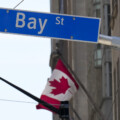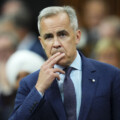Welcome to another NHL free agent season! We are deep into the summer now and depending on who you cheer for you’re either delighted, furious, or perplexed by your team’s decisions so far. Furious might not be strong enough if you’re a Calgary Flames fan. Franchise player Johnny Gaudreau booked a one-way ticket to Columbus, Ohio. It’s no surprise that fans are taking this personally. I’m an Islanders’ fan, so I know what it’s like when your franchise player leaves town for no compensation on 24 hours’ notice.
Of course, he’s just a hockey player. Surely, they can find someone nearly as good to replace him? Losing one 28-year-old kid from New Jersey surely isn’t enough to change the fate of an entire professional hockey franchise, right? Well, there are 32 teams in the NHL and only eight guys scored over a hundred points last year. Gaudreau finished tied for second with 115.Stats – Skaters https://www.nhl.com/stats/skaters If there were hundred-point scorers laying around North Bay, other teams would probably find them. But that doesn’t happen very often, because the difference between the top one percent of professional hockey players and the top five left wingers in the world is enormous. It’s a game of milliseconds and millimeters. Tiny edges in performance lead to massive differences in outcomes. And Johnny Hockey is very, very, good at hockey.
Of course, not every industry has the same flexibility as professional sports. Getting a job in another country is a daunting, bureaucratic process for most people who can. For most people, it’s not a practical option. But governments make it easy for professional athletes to work across borders—even Russian nationals. After all, if your local sports team wants to win, they need the absolute best players.
The Washington Capitals probably wouldn’t have a Stanley Cup if Alex Ovechkin had been sent back to Russia. The reigning champion Colorado Avalanche wouldn’t have enough talent to compete in the AHL if they weren’t able to ice their foreign-born players (especially the Canadians). To find something close to an all-domestic-born team that won the Stanley Cup, you have to go back to the 1992/93 Montreal Canadiens. While Canada has produced around half of the players in the NHL over the past few decades,NHLers by Country: On Top of Their Game and the World https://thehockeywriters.com/current-nhl-players-by-country/ no team in recent history has tried to field an entire team of Canadiens. The reality is, if you’re trying to win, you need to go with the best talent regardless of where players are born. In a competitive global talent market, you don’t have the luxury of worrying too much about details like whether someone is from Brampton or Bratislava.
Pro-sports teams are unusual in that no one seems to make a fuss about where their teams’ players are born. Fans crave the best players because they want their teams to win. When it comes to other businesses, though, it’s not so simple. Part of it is that few of us see the inner workings of big businesses. We can see what hockey players bring to the table by turning on the game. So we care a lot about our teams having access to the best players. If for some reason Auston Matthews was denied a work visa, there would probably be a revolution. If a software engineer is denied a work visa, we might never hear about it. Since most of us neither understand what those people actually do (I don’t), nor how big the difference is between a good employee and a great one, it’s hard to get worked up about someone not being able to work in Canada. Some might even view it as a victory for Canadian workers. But sometimes missing out on global talent has major implications.
Consider, for instance, COVID vaccines. The co-founder and chairman of Moderna was born in Armenia, moved to Canada as a teen, then settled in Massachusetts. Choosing America rather than, say, staying in Canada, gave the United States a major edge in the vaccine race. Similarly, the co-founders of BioNTech SE, who created the Pfizer vaccine, were children of Turks whose parents brought them to Germany. Germany’s gain, Turkey’s loss. There are any number of examples of this. Think about a counterfactual where Elon Musk managed to build Tesla in Canada rather than leaving for Silicon Valley. Or think about American-trained Turkish national Erdal Arikan. You probably haven’t heard of him (neither had I). But he made a crucial breakthrough in developing 5G technology. He wasn’t able to get a suitable job stateside (and therefore no work visa), so off he went to China. He brought his technology to a little outfit you probably have heard about—Huawei—and gave China a massive advantage in the race to build out 5G technology. And that has created a major headache for the West.
This was something that Ronald Reagan understood.The Cold War’s Lesson for Immigration Policy https://www.cato.org/publications/commentary/cold-wars-lesson-immigration-policy So did George HW Bush. It’s a lesson that was forgotten as the memory of the Cold War faded. If you want to beat the Soviets, take their best scientists. Similarly, if the West wants to keep its technological edge over China, we should welcome their best engineers and scientists.
Not every immigrant story is this dramatic. But in a competitive global economy, even small missed connections add up. If you want to win, you need the best, whether they’re from Victoria or Vladivostok. Hockey teams know this, and they play to win. It’s hard to compete with America. But given that they’ve stopped trying so hard to attract the best and brightest,America has an innovation problem. The H-1B visa backlog is making it worse. https://www.vox.com/future-perfect/23177446/immigrants-tech-companies-united-states-innovation-h1b-visas-immigration that’s an opportunity for Canada. We should seize it as ruthlessly as the Columbus Blue Jackets seized Johnny Gaudreau.
Recommended for You

‘Another round of trying to pull capital from Canada’: The Roundtable on Trump’s latest tariff salvo

Canada is losing ground on investment. Here’s where

Carney’s next budget will be built on a shaky fiscal foundation

‘Those deficits are almost surely going to rise’: Trevor Tombe on the fiscal challenges facing the Carney government



